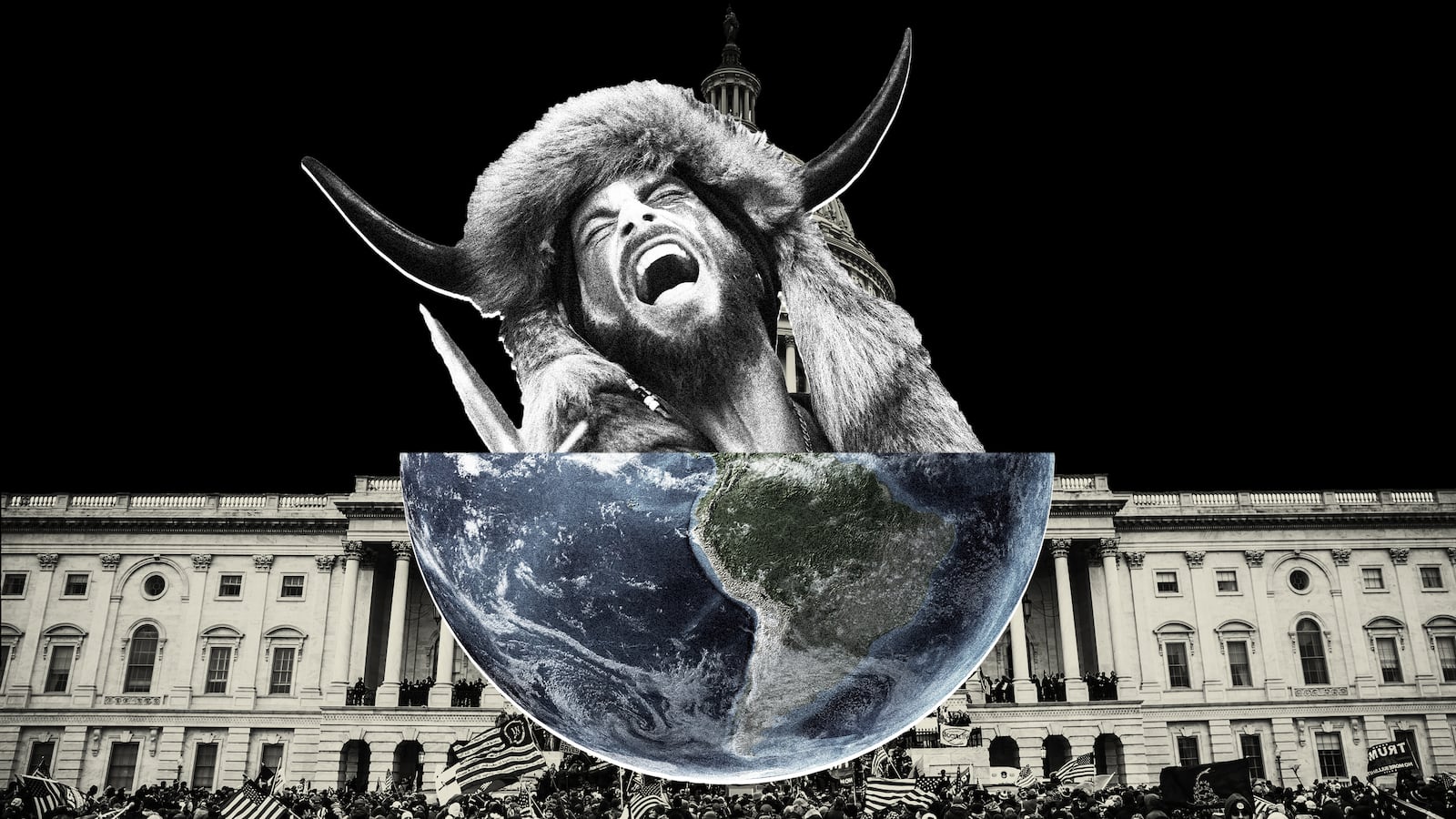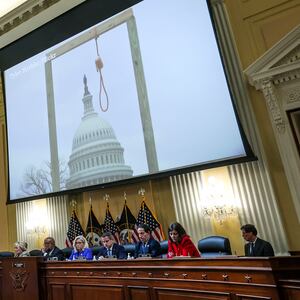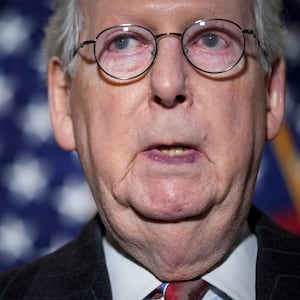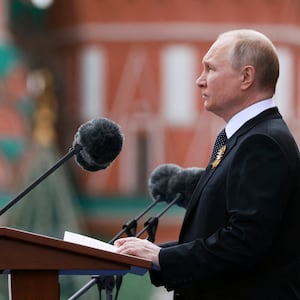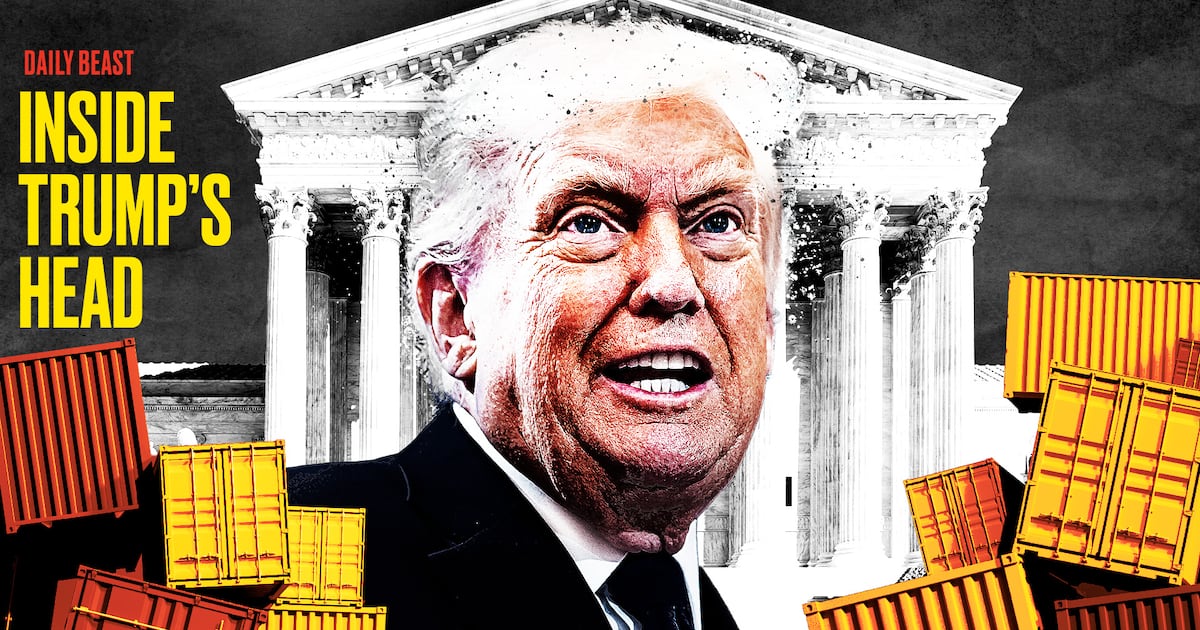“The world is watching what we do here,” said Rep. Bennie Thompson, chairman of the House Select Committee to Investigate the Jan. 6 Attack on the Capitol. “America has long been expected to be a shining city on a hill. A beacon of hope and freedom. A model for others—when we’re at our best,” he added.
Judging from global press’ reaction to the Jan 6. Committee’s first public hearings, he is right. The planet is paying attention. And though international media outlets certainly covered the event, it was typically framed as a local U.S. story—bumptious politics as usual from a divided America—and not in terms of its broader implications for America’s standing, or of what these hearings might mean for the future of democracy worldwide.
News items typically zeroed in on the core case made by Thompson and the committee’s vice chair, Republican Rep. Liz Cheney, which is that former U.S. President Donald Trump was at the center of an attempted coup against the government of the United States.
France’s Le Monde featured a headline that read, “Donald Trump 'lit the fuse' for Capitol assault, commission of inquiry finds.” The article focused on Cheney’s assertion that Trump “oversaw and coordinated a sophisticated seven-part plan to overturn the presidential election and prevent the transfer of power.” Le Devoir offered a similar perspective with a headline that did not require the reader to be a French speaker to understand: “Donald Trump mis au centre d’une conspiration antidémocratique.”
The Australian had a similar focus, announcing, “US Capitol riot probe puts Trump at the heart of ‘attempted coup.’” Its story, like many in the press around the world and in the U.S., underscored that the hearings revealed many new perspectives—including shockingly graphic, violent, new video of the Capitol assault. Australia’s The Age argued that the committee made “a compelling case,” underscoring the role of former ABC News President James Goldston in helping to orchestrate the hearing’s flow and presentation.
Asserting that the “stakes are high,” author Farrah Tomazin was among those who most clearly got the bigger message the committee was seeking to send. She observed that “there is every reason to think that the Capitol attack was just the beginning for Trump and his allies—and next time, they may be much better organized.”
The video production values had some around the world questioning whether a presentation that was so slickly produced could be serious. An article in the Times of Israel described “a harrowing moment, repackaged for primetime” with author Ted Anthony wondering whether this was just a “summer rerun” or a “pseudo event.” It should be noted that as of Friday morning U.S. time, that was somewhat more coverage than the event got elsewhere in Israeli papers from the left-leaning Ha’aretz to the right-leaning Jerusalem Post.
The United Arab Emirates’ The National offered a straight take on the event, alongside another story focused on GOP critiques of the Select Committee effort.
Perfunctory straight news coverage well below the top stories of the day was the norm from the Americas and Asia. In fact, the coverage in the Singapore Straits Times, South China Morning Post, and the Xinhua News Agency, for example, ranged from invisible to negligible and bland. (Although Xinhua’s offered plenty of coverage about various U.S shortcomings and mistakes.) Same for Japan’s Nikkei.
One Chinese outlet, CGTN, did seize the opportunity to highlight that Ivanka Trump was persuaded by former Attorney General Bill Barr’s views that her father was wrong about the election outcome, thus providing them with the chance to cast some long-distance shade.
The U.K.’s Daily Mail, known for its sensationalistic coverage, led with a different U.S. story altogether—about Britney Spears’ latest wedding. Further down its website, the Mail had an item that reported “Ivanka rejected her father’s claims the election was stolen,” and also flagged Liz Cheney’s assertion that Trump said his vice president, Mike Pence, may have deserved to be hanged. The Guardian offered more comprehensive coverage but did have one article zeroing in on the stunning Ivanka moment, while the Rupert Murdoch-owned Times of London mentioned the “hanging” anecdote. (This is in contrast with Murdoch’s U.S. media properties—including Fox News, the Wall Street Journal, and the New York Post—which either shunned live coverage or otherwise buried the story.)
Germany’s Die Zeit began its piece about the hearing, “A conspiracy that ended in violence” by noting Chairman Thompson’s observation that the world is watching but then went on to observe that “above all” the story was one of America looking at itself, reporting on the near saturation live coverage of the hearings via “almost all television stations in the country.” While this is no doubt true and helped convey to German audiences the importance of the event, it, like the rest of the coverage of Thursday’s hearings, does underscore that the import of the Select Committee hearings may not be fully appreciated worldwide.
If the case being made by Thompson, Cheney, and the committee is insufficient to derail the ongoing efforts of the Trump-led Republican Party to undermine democracy in the U.S., that city on the hill is not going to shine so brightly anymore. And that is a story that is not just of importance to American TV viewers, not just a “summer rerun.” If the world’s most powerful democracy, the country that most actively championed democracy worldwide, ceases to live up to the values it once espoused and is unable to advocate for reforms for which it has often advocated and fought—then democracies and would-be democracies everywhere in the world will be affected.
For this reason, while it is good that the world was paying attention, international media outlets need to dig a little deeper over the course of the next six scheduled hearings of this committee to understand why its revelations and deliberations are so important, not just to Americans but to their own readers.
Because the real headline that should have come out of yesterday’s hearings was not about Ivanka or Jared or hanging Vice President Pence or combat-like violence against Capitol Police. It is that the world’s leading democracy is in critical condition, and unless it can be saved through hearings like these, and by the actions of the Department of Justice and by voters going to the polls, the consequences for the entire planet will be profound.

